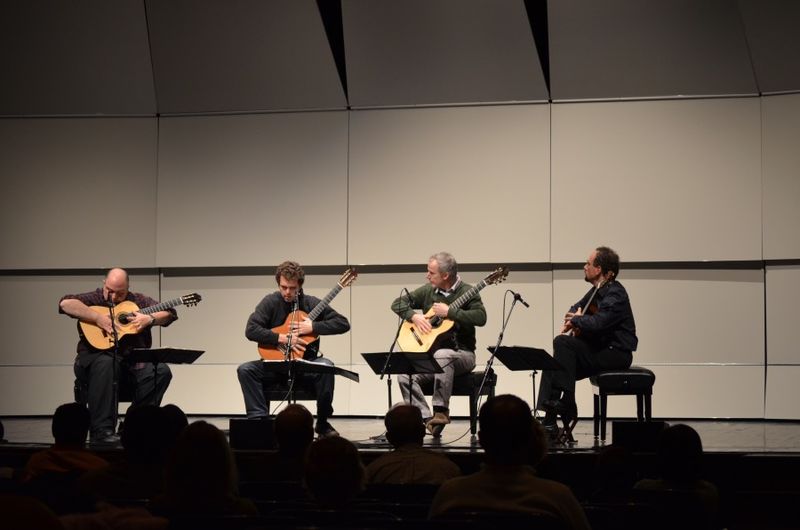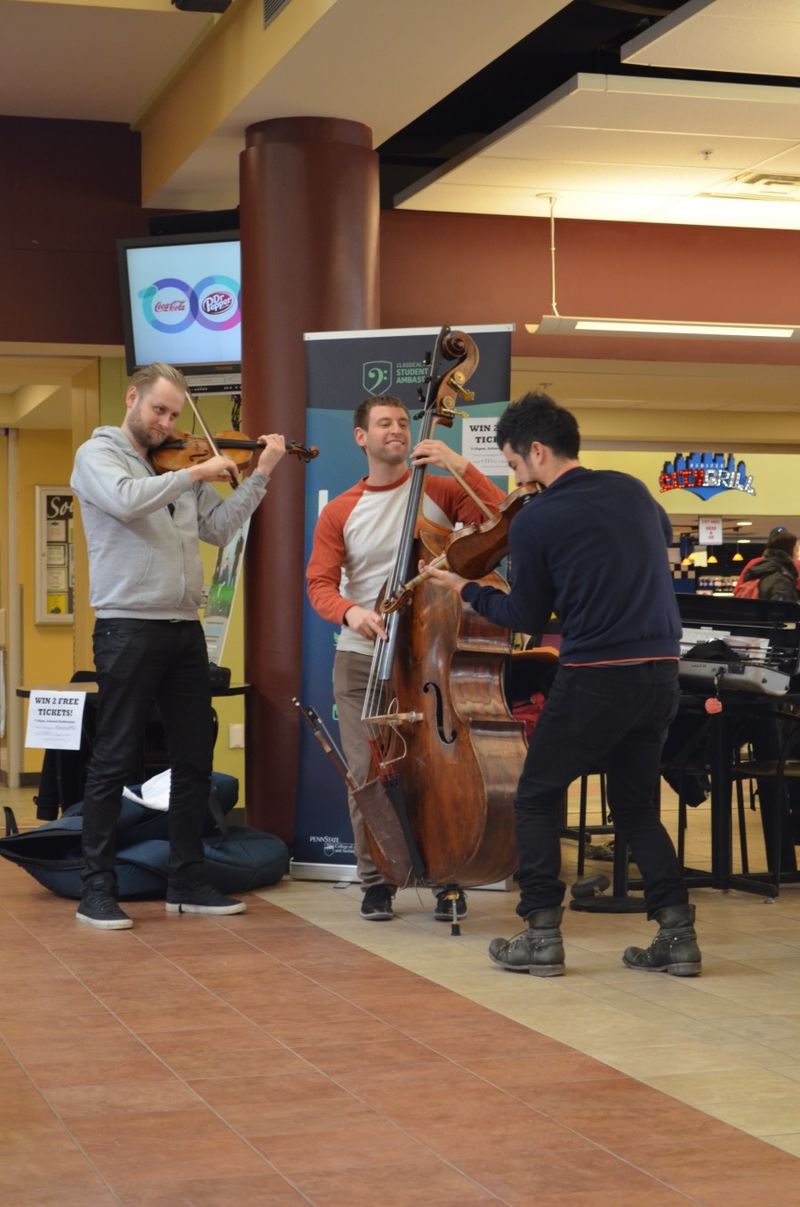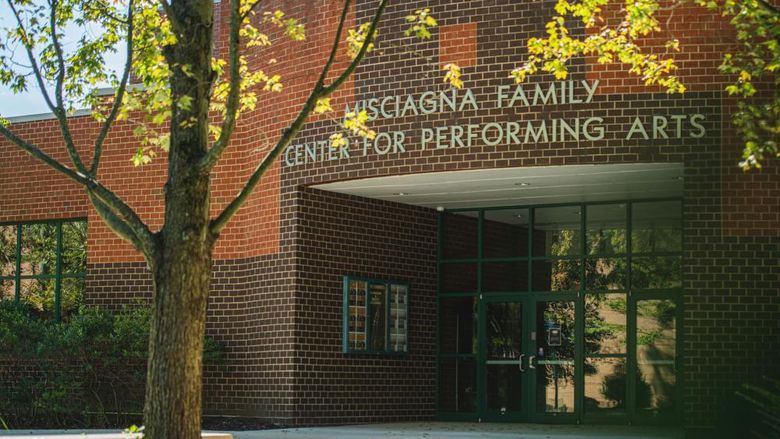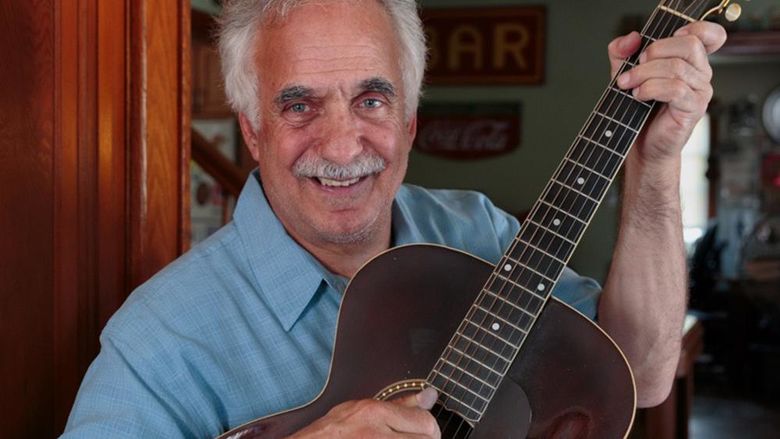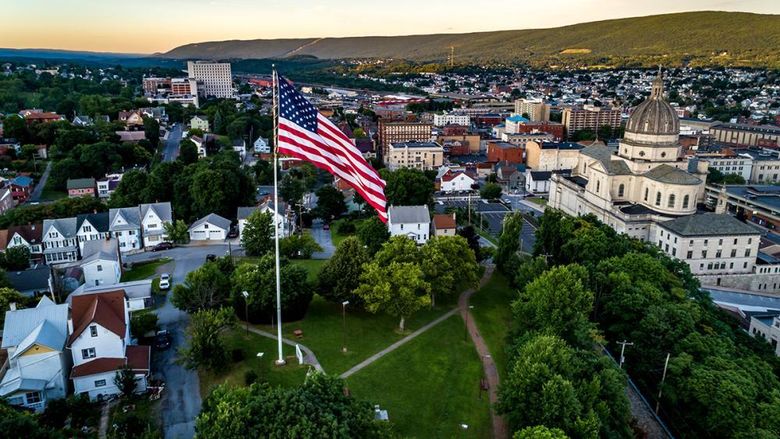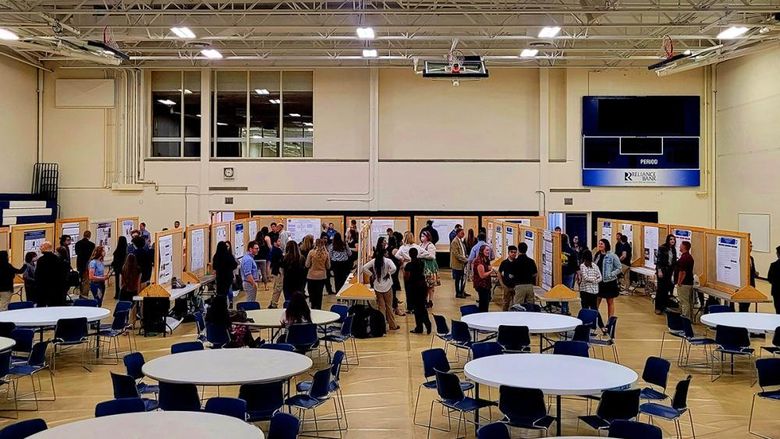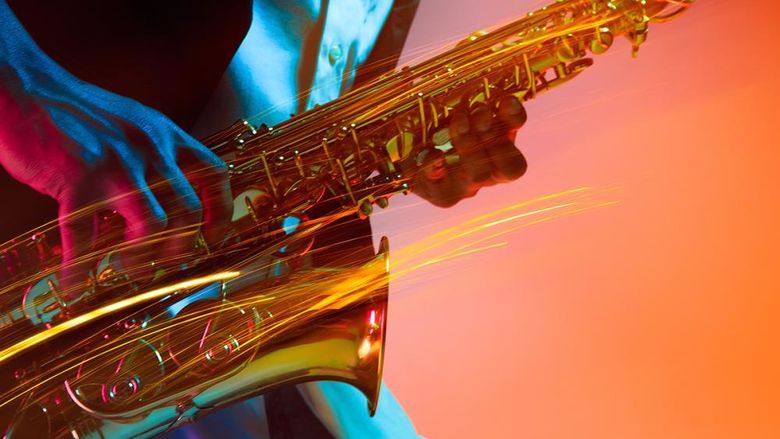UNIVERSITY PARK, Pa. — The Center for the Performing Arts Classical Music Project, an initiative that aimed to elevate the profile of the center’s classical music program within the community, recently concluded its six-season commitment.
According to center Director George Trudeau, the focus of The Andrew W. Mellon Foundation-funded project was to provide students with live performance experiences and personal interaction with the musicians as a way to engage and grow new audiences.
“College students are at a time in their lives when they should be in hyper-discovery mode and open to new experiences,” Trudeau said. “This may be the last time when they can devote themselves so completely to the broad range of experiences provided on a university campus.”
Promoting an accessible genre
The Western music style — most uniquely characterized by its complex instrumentals, solos or vocal intonations — is easily encountered. Commercials, rap songs, ringtones and film scores feature sound bites of recognizable compositions.
The result is a centuries-old genre that has become more accessible and relevant to audiences. Theaters nationwide now live-screen Metropolitan Opera performances from New York City; organizations such as Group Muse bring the classical ensemble to one’s living room; and the internet makes experiencing the classical canon even easier.
The Mellon Foundation wanted to capitalize on this accessibility and to develop it. Trudeau was one of a group of university-based performing arts center directors invited to explore ways to increase student interest in the style that defined a significant period in music history. Trudeau and his team then drafted a proposal to integrate classical programming into the season schedule and introduce it to the student population.
“For the foundation and the performing arts centers, connecting classical music to college and university students through a variety of different approaches was intriguing,” he said.
Trudeau’s plan outlined four key areas to reach new audiences: a major residency program, student engagement activities, curriculum partnerships and a Penn State campus share project. The foundation approved the proposal and awarded a $470,000 grant — the largest in the center’s history — to fund the 2011 to 2014 seasons. An additional $400,000 was awarded later to fund the 2014 to 2017 seasons.
The Classical Music Project commenced in 2011 and featured St. Lawrence String Quartet, Irish Chamber Orchestra, Chamber Orchestra of the Theatre of Early Music, Brentano String Quartet, and Los Angeles Guitar Quartet. The ensembles engaged students — and at some events, the public — via master classes, intimate coffeehouse-themed events, artist presentations and more.
Getting ‘more bang for our buck’
Over time, because of costs and logistics, the project’s four components morphed into more practical areas of concentration, while other aspects of the initiative were eliminated. By the final season, the program’s elements included visits by guest ensembles, composer residencies, student and community engagement activities, faculty and Penn State Altoona partnerships, a student ambassador plan, course development, and a Classical Coffeehouse series of intimate concerts.
“It became obvious early on that the major residency program would be quite expensive,” Trudeau said of one reason behind the revision. “We could get more bang for our buck in reaching and engaging students by reallocating these funds to support bringing additional chamber music ensembles and benefiting from the increased residency activities and performances that would result.”
Marica Tacconi, a Penn State professor of musicology and associate director at the School of Music, agrees that the project’s sections were revisited to attract more students.
“Although the classical music film and lecture series were successful in many ways, we ultimately felt that we could reach a wider audience by offering more Classical Coffeehouse evenings,” she said.
Success borne from opportunity
In the project’s six years, the center realized its goals. Students were being exposed to classical music in more ways, and not only music students.
More artists performed in residence halls for pop-up concerts. More varied academic departments welcomed classical music-related programs for their students, including arts-entrepreneurship lectures and leadership seminars. Involved students praised the project’s ambassador element, saying it gave its participants a sense of ownership — and desire for success — for the classical music programs.
In the project’s final three years, more than a thousand students interacted with visiting artists during residencies, which resulted in more students buying tickets to Classical Music Project events. Student attendance at the center’s classical music events increased from 26 percent total audience in the center’s first season to 40 percent in the 2013-14 season. Data shows that student attendance continued to rise. In the 2014-15 season, students comprised 43 percent of the center’s classical music audience; that increased to 51 percent in 2015-16 and to 57 percent in the project’s final season.
“Overall, our audiences have had increased opportunities to engage with classical music,” Trudeau said. “The engagement programs have provided (students) chances to meet the artists, get to know them better, along with a greater understanding of the repertoire they are performing.”
A salon evening rebranded
In 2013, the project’s third season, the center reintroduced its Salon Evening series as Classical Coffeehouse. The aim was to engage students and the community with visiting artists in a shorter musical program and related presentation, and performed in a more intimate, living-room setting. The center recruited a spectrum of University organizations — including Residence Life, the Alumni Association, Student Affairs and School of Music professors — to facilitate the events.
The inaugural event, hosted by St. Lawrence String Quartet, drew 86 listeners, 36 of them students.
Post-event student feedback pointed to the intimate settings and engaging interactions with the artists that attracted the new audience. Some respondents stated the coffeehouse “exposed me to music I do not typically listen to” and “was one of the best performing arts events I’ve attended in my five years here.” “The atmosphere was perfect,” wrote another.
The series format was significant because “music-making in the ‘up close and personal’ setting that a Classical Coffeehouse affords can be a life-changing experience,” Tacconi said.
While part of the formula for continued success is by fostering a University-wide environment open to classical music, the coffeehouse series will be a major force in seeing that the spirit of Classical Music Project endures. The lineup for the 2017-18 Classical Coffeehouse series includes Sō Percussion, a preview of a Penn State Opera Theatre performance of Wolfgang Amadeus Mozart’s “Cosi fan tutte,” and a School of Music Presentation of “A Cuban Music Experience.”
